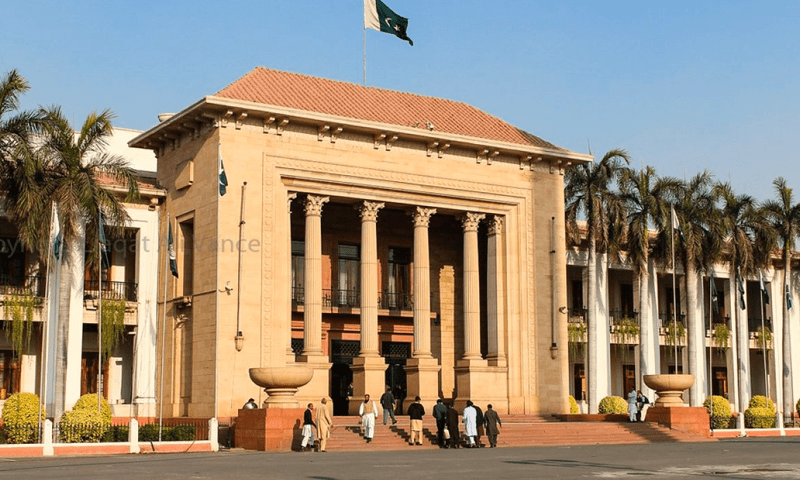Dr Shabana Safdar Khan
Women’s empowerment is far more than a passing trend; it’s a fundamental right and a catalyst for societal progress. It signifies granting women equal rights, opportunities, and privileges as men, enabling them to participate in all aspects of life fully. From social and economic spheres to political domains, women’s empowerment plays a pivotal role in creating a just, inclusive, and sustainable society. However, achieving this goal remains a complex endeavor, especially in countries with entrenched patriarchal structures like Pakistan.
Pakistan faces several roadblocks on the path to women’s empowerment. One of the most significant challenges is limited access to education for girls. Cultural and socio-economic factors often discourage families from prioritizing girls’ education, hindering their ability to develop skills and gain knowledge critical for future success. This disparity creates a ripple effect, limiting women’s opportunities throughout their lives.
Another major challenge is gender-based violence. This violence, both physical and mental, takes a significant toll on women’s well-being. It creates an atmosphere of fear and insecurity, further restricting their participation in various aspects of life. Addressing this issue requires a multi-pronged approach, including legal reforms that provide stronger protection for women and awareness campaigns that challenge societal attitudes that normalize violence.
Unequal representation in decision-making processes presents another hurdle. Women remain underrepresented in both political and economic spheres. This lack of representation means their voices are often unheard, and their needs are not adequately addressed in policymaking and resource allocation.
Finally, economic disparities create a significant obstacle. Economic empowerment is crucial for women’s overall empowerment. Without access to resources like land, credit, and employment opportunities, women remain trapped in cycles of poverty, limiting their independence and ability to participate fully in society.
Despite these challenges, there are clear strategies that can pave the way for a more empowered future for women in Pakistan.
Access to quality education is a cornerstone of progress. Initiatives to eliminate gender stereotypes and cultural norms that discourage girls’ education are essential. Additionally, providing scholarships and increasing awareness about the importance of education can lead to higher enrollment rates for girls, equipping them with the tools they need to reach their full potential.
Gender-responsive legislation and policies are crucial for creating an environment conducive to women’s empowerment. Enacting and enforcing strong laws that protect women’s rights and promote gender equality are essential steps. These laws should address discrimination and ensure equal opportunities for women in all sectors, from education and healthcare to employment and political participation.
Economic empowerment is vital to break the cycle of poverty and dependence. Initiatives that facilitate women’s access to credit, land, and employment opportunities are critical. Programs that provide training and skills development can also help women secure better jobs and achieve greater economic independence.
Investing in women’s health and well-being is another crucial step. This includes ensuring women have access to comprehensive healthcare services, including reproductive health and nutrition programs. A healthy woman is better equipped to participate in all aspects of society, both personally and professionally.
Increasing women’s political representation is essential for ensuring their voices are heard in decision-making processes. Strategies such as reserved seats and quotas can help to bridge the gap in political representation. Encouraging women to participate in political campaigns and leadership roles can further empower women to advocate for policies that reflect their needs and concerns.
Raising awareness about women’s rights and empowerment is key to creating a more supportive environment. Engaging civil society, media, and community leaders in advocacy efforts can play a crucial role in shifting societal attitudes and promoting gender equality.
Therefore, women’s empowerment is not a standalone goal; it is an essential component of sustainable development. By addressing the challenges outlined above, implementing strategic interventions, and fostering a supportive environment, Pakistan can achieve a more equitable and empowered society for all. Women’s empowerment is not an isolated endeavor—it is a collective responsibility that benefits everyone in society. When women are empowered, families, communities, and nations thrive. Let us work together to create a future where women can reach their full potential and contribute meaningfully to building a brighter future for Pakistan.
Pakistan, like many developing countries, faces challenges in achieving gender equality and empowering women. However, the government and its provinces have undertaken various initiatives to address this issue. The foundation for women’s empowerment lies in a robust legal framework. Pakistan has enacted several laws promoting gender equality, including the Women’s Protection Act (2016) and the National Policy for Development and Empowerment of Women (2002). These policies aim to eliminate discrimination, ensure equal access to education and healthcare, and promote women’s participation in decision-making processes. Additionally, provinces are formulating their own policies aligned with national goals.
Government institutions play a crucial role in promoting gender equality. Initiatives include departmental restructuring to integrate gender perspectives into everyday functioning. This might involve creating dedicated gender units or appointing gender focal points within departments. Training programs for government employees on gender sensitivity and mainstreaming gender equality in their work are also crucial.
Gender equality needs to be considered in all aspects of government functioning. This means integrating it into public policies, laws, programs, and projects undertaken by various departments and agencies. For instance, infrastructure projects should consider the needs of women in terms of accessibility and safety. Similarly, education policies should ensure equal access and quality education for girls.
Effective implementation of policies requires strong monitoring and coordination mechanisms. The government needs dedicated bodies to oversee the execution of national and provincial policies on gender equality. These bodies would also be responsible for promoting gender mainstreaming across departments and providing technical support and expertise.
Investing in women’s development is essential for achieving gender equity. This includes allocating resources for education, skills development, healthcare, and economic opportunities for women. Data collection and research on the status of women in various provinces are crucial for identifying critical areas and tailoring interventions accordingly. Punjab, for example, can gather data on women’s literacy rates, labor force participation, and political representation to highlight specific challenges. This data can then be used to advocate for targeted policies and programs.
The government cannot achieve women’s empowerment alone. Collaboration with non-governmental organizations (NGOs) and civil society organizations (CSOs) is crucial. These organizations have experience working at the grassroots level and can provide valuable insights and support in delivering on women’s rights and entitlements.
Women’s voices need to be heard in decision-making processes. The government can encourage women’s political participation through measures such as quotas for women in elected offices and political parties. Training programs for women aspiring to pursue political careers can also be beneficial.
A critical aspect of women’s empowerment is ensuring their access to justice. This involves collaborating with legal, judicial, and law enforcement agencies to create a safe and supportive environment for women seeking legal recourse. Initiatives can include establishing women’s police stations and providing legal aid to women in need.
Allocating adequate resources and ensuring proper financial management are essential for the successful implementation of women’s empowerment initiatives. This includes transparent budgeting, accounting, and auditing mechanisms to track the use of funds and ensure they reach their intended beneficiaries.
Women’s empowerment in Pakistan is a complex but achievable goal. By implementing a multi-pronged approach encompassing legislation, policy development, institutional reforms, and collaboration with various stakeholders, the government and provinces can create an environment where women can thrive and contribute meaningfully to society. Continuous monitoring, data analysis, and adaptation of strategies are key to ensuring long-term success.















